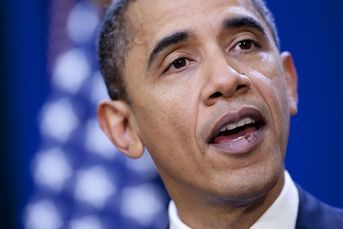Let’s call insider trading what it is: a crime
Some pundits would have you believe that insider trading is a victimless crime or perhaps not a crime at all
Some pundits would have you believe that insider trading is a victimless crime or perhaps not a crime at all. They argue that trading on nonpublic information improves price discovery and actually leads to more-efficient markets.
Nothing could be further from the truth.
Insider trading is front-running by another name, and it cheats all investors. Every owner of shares manipulated by insider trading is a victim.
That is why the insider trading conviction of hedge fund billionaire Raj Rajaratnam was an important step toward restoring trust in America’s financial markets.
In addition to direct investors, the victims of insider trading are the 401(k) plan participants, mutual fund shareholders and bank trust customers who received lower prices for their shares because a few sharpies had inside information.
To be sure, when I talk about insider information, I am not talking about the inferences that clever investors and analysts can make from unofficial information.
For example, analysts have made astute buy or sell recommendations on retail companies based on their observations of the number of deliveries made to stores — nonpublic information that anyone with the patience and the ability to draw inferences is free to use.
Instead, what I am talking about is trading on knowledge of major corporate events — a merger, acquisition, financial filing or significant management change — before that information is released to the public. That is clearly illegal and wrong.
Insider traders know that what they are doing is illegal and don’t care. For these people, cheating is just a part of their business model and it can be extremely profitable.
A former Galleon Group fund manager who testified during the Rajaratnam trial said that the firm did legitimate homework but also cheated by using insider information.
Beyond profiting on information that others don’t have, insider traders harm everyone by undermining trust in financial markets. If more and more people become suspicious of markets because they come to think that the game is rigged, they will shy away from investment opportunities, damaging the nation’s capital-raising mechanism as well as endangering their own financial futures.
Although it is impossible to identify a specific Mr. Jones or a Ms. Smith who was defrauded by Mr. Rajaratnam, insider trading produces real victims: all of us.
As it is, the deck already is stacked against the individual investor.
Institutions and giant financial firms dominate equity trading and their working relationships with the corporate world give them valuable information about potentially market-moving events long before such information finds its way to Mr. and Ms. Average Investor. Institutional investors also have the resources to hire consultants to dig up and analyze data that individual investors simply can’t afford on their own.
As the Rajaratnam prosecution revealed, the “expert network” firms that produced high-level insights — allegedly by paying technology industry workers for inside information — hardly were engaging in legitimate research.
Perhaps the dark side of Wall Street won’t be eliminated. But even if the playing field remains uneven, investors can take solace in knowing that federal prosecutors take seriously their responsibility to ensure that the rules apply to everyone.
The conviction of Mr. Rajaratnam on charges of fraud and conspiracy goes a long way toward restoring confidence in the markets.
The verdict signaled to other bad guys that the consequence of insider trading isn’t just a lot of fast bucks, it also can be a really long stay in federal prison.
Jim Pavia is the editor of InvestmentNews.
Learn more about reprints and licensing for this article.





